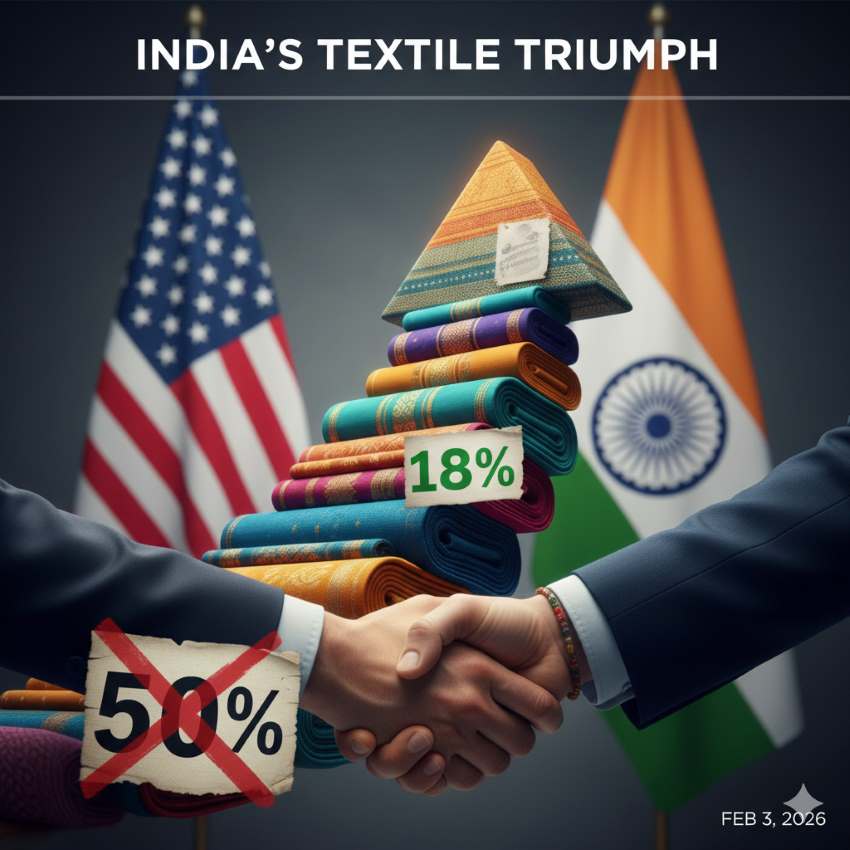"McKinsey’s State of Fashion reveals 2019 is a year of awakening for the fashion industry as it has brought along a number of strategic and operational challenges like sustainability, ethical fashion, etc. To take stock of these challenges, LINKS Foundation for TCBL released a research note that hails blockchain as a ‘trust technology’ that redefines the way transactions work by disintermediating middlemen and kick-starting an era of radical decentralisation."
 McKinsey’s State of Fashion reveals 2019 is a year of awakening for the fashion industry as it has brought along a number of strategic and operational challenges like sustainability, ethical fashion, etc. To take stock of these challenges, LINKS Foundation for TCBL released a research note that hails blockchain as a ‘trust technology’ that redefines the way transactions work by disintermediating middlemen and kick-starting an era of radical decentralisation. The technology is currently in its initial stages. However, its immutable ledger can give the fashion industry a makeover. The technology can be applied in three primary areas:
McKinsey’s State of Fashion reveals 2019 is a year of awakening for the fashion industry as it has brought along a number of strategic and operational challenges like sustainability, ethical fashion, etc. To take stock of these challenges, LINKS Foundation for TCBL released a research note that hails blockchain as a ‘trust technology’ that redefines the way transactions work by disintermediating middlemen and kick-starting an era of radical decentralisation. The technology is currently in its initial stages. However, its immutable ledger can give the fashion industry a makeover. The technology can be applied in three primary areas:
Transparency along the value chain: The technology guarantees transparency and traceability along the entire value chain as it brings visibility to the various production stages.
Enabling communication amongst companies and customers: It also facilitates interactions and commercial exchanges amongst B2B companies and their customers. Blockchain allows customers to verify the trustworthiness of all involved actors in order to streamline reputation management, loyalty programs, and compensation to influencers.
Involving users in company governance: Blockchain also encourages users to participate in company’s governance as well as day-by-day operations. The incentives of shareholders, employees and clients are aligned through tokens to unlock value and make businesses thrive.
Additionally, the research notes interest in blockchain-enabled services varies across different types of fashion companies. The study examines large premium brands, fast-fashion companies, and emerging brands deploying a non-traditional go-to-market model competing against established incumbents. These emerging brands defined as challengers’ – represent the reference archetype for the community of TCBL Associates that tend to prioritise ‘access to the market’ applications. These brands are also interested in ‘value chain management’ applications as it helps them to demonstrate their environmental and social commitments. They are also inclined to explore ‘user engagement’ opportunities as well, either to tap into collective intelligence or to experiment with new fundraising avenues.
Blockchain can thus be instrumental in the implementation of radical transparency paradigm from farm to retail. It can allow granular control of personal data in predicting offering platforms and can redesign incentive mechanisms in peer-to-peer transactions taking place within the TCBL ecosystem. This has been corroborated by the advent of blockchain-based offerings that TCBL Service Providers make available to Associates. Provenance, for instance, uses blockchain technology to enable secure traceability of certifications and other salient information in supply chains to prove authenticity and origin. Another TCBL Service Provider that harnesses the blockchain technology is Seratio, which can capture social value resulting from transactions involving people, products, processes and organizations through this technology.












